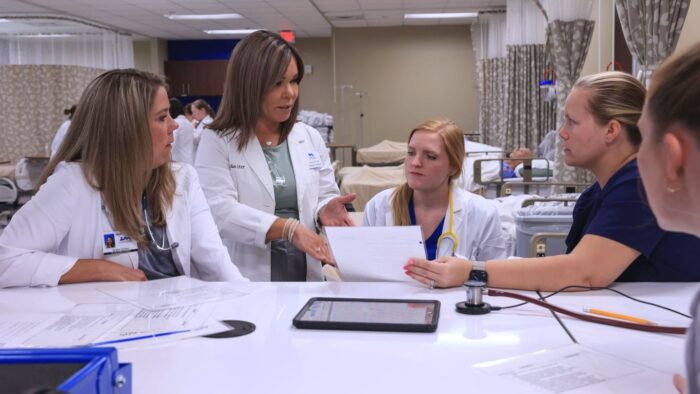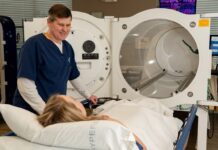
Embarking on an RN to MSN program is a significant step for nurses aiming to elevate their professional standing. These programs are designed as a bridge for registered nurses (RNs) who have completed an associate degree in nursing (ADN) or a nursing diploma to earn a Master of Science in Nursing (MSN).
The importance of these programs can’t be overstated; they open doors to advanced practice roles, leadership positions, and specialties that demand a higher level of education and expertise.
The Structure of RN to MSN Programs

Prerequisites and Admission Requirements
Embarking on the journey to an MSN degree starts with meeting certain prerequisites and admission requirements, which are the gatekeepers to the best RN to MSN programs. These top-tier programs typically seek candidates with an active RN license and at least 1-2 years of clinical experience under their belt.
Academic prowess is also a key factor, with a GPA often required to be in the range of 2.75 to 3.25. Beyond these basics, some of the best RN to MSN programs may ask for GRE scores, compelling personal essays, and strong recommendations. An interview might also be part of the process, offering a chance for candidates to demonstrate their readiness for the academic rigor ahead.
Program Length and Format
The journey from RN to MSN can typically take around three years, but this varies depending on whether a nurse studies full-time or part-time. The flexibility of program formats is a boon for busy professionals; many institutions offer online courses to accommodate working nurses.
However, despite the convenience of online learning, clinical hours are a non-negotiable component, often completed at a local healthcare facility or the nurse’s place of employment.
Curriculum Overview
The curriculum in RN to MSN programs is a blend of undergraduate and graduate-level coursework. Initially, students might tackle general education and foundational nursing courses, if they haven’t been covered in previous studies.
As they progress, the focus shifts to advanced subjects like pharmacology, health assessment, and leadership, alongside specialized tracks that align with the student’s career aspirations.
Clinical components are integral, ensuring that theoretical knowledge is complemented by hands-on practice. Many programs culminate in a capstone project or thesis, allowing students to showcase their mastery of a particular area of nursing.
Advantages of Pursuing an RN to MSN Program

Career Advancement Opportunities
An MSN can significantly amplify a nurse’s career trajectory. Graduates often step into expanded roles with greater responsibility, such as nurse practitioners, nurse midwives, or nurse anesthetists. Leadership positions within healthcare organizations also become accessible, often accompanied by a substantial increase in earning potential.
According to data from NurseJournal.org, the median salary for an RN is $75,330, while a nurse practitioner can earn a median of $111,680, with some specialties commanding even higher salaries.
Specialization and Expertise
Specialization is another compelling reason to pursue an RN to MSN. Nurses can hone their skills in specific areas like family practice, pediatrics, geriatrics, or midwifery, to name a few. This not only meets the growing industry demand for specialized care but also allows nurses to align their careers with their interests and passions. The expertise gained through an MSN program is both deep and broad, covering advanced clinical skills, patient assessment and diagnosis, pharmacology, and effective communication.
Challenges and Considerations

Time Commitment
The road to an MSN is not without its challenges, with time commitment being a significant one. Nurses must often juggle their education with work and personal responsibilities, which can be a daunting task. The intensity of the program, especially when it comes to fulfilling clinical hours, requires a well-thought-out plan to balance all aspects of life. This balancing act is crucial to ensure that the quality of care provided to patients does not diminish while pursuing further education.
Financial Considerations
The financial aspect of an RN to MSN program is another important consideration. Tuition can be a substantial expense, and while some employers offer tuition reimbursement or other financial incentives, nurses must often look into scholarships, grants, and loans to fund their education. It’s essential to weigh the cost against the potential return on investment, which can be significant given the higher earning potential and career advancement opportunities that come with an MSN degree.
Licensing and Accreditation
Ensuring that the chosen RN to MSN program is accredited is crucial, as this affects the ability to obtain licensure and certification post-graduation. Accreditation signifies that the program meets the high standards required for advanced nursing education.
Additionally, state licensing requirements and national certification considerations must be taken into account, as these vary and can impact where and how a graduate can practice.
How to Choose the Right RN to MSN Program

Research and Program Evaluation
When selecting an RN to MSN program, thorough research is vital. Prospective students should investigate the accreditation status of the program, the qualifications of the faculty, and the outcomes of alumni. This information can provide insight into the quality of the program and its effectiveness in preparing graduates for advanced nursing roles.
Personal Goals and Specialization
Understanding one’s career objectives is essential when choosing an RN to MSN program. It’s important to match the program offerings with personal and professional goals. For those who have a clear idea of the specialization they wish to pursue, it’s beneficial to select a program that offers strong courses and clinical experiences in that area.
Flexibility and Convenience
For many nurses, the flexibility and convenience of a program are key factors in their decision-making process. Many programs offer online coursework to accommodate working professionals, but it’s also important to consider the location and accessibility of clinical placements. The choice between online and on-campus options will depend on individual preferences and life circumstances.
Conclusion
RN to MSN programs are a critical component in the advancement of nursing practice, offering a pathway to higher education and opening doors to a variety of advanced practice roles. They require a significant investment of time, effort, and financial resources, but the rewards can be substantial in terms of career advancement, specialization, and personal fulfillment.
As the healthcare landscape continues to evolve, the demand for highly educated and skilled nursing professionals will only grow, making the decision to pursue an RN to MSN program a potentially transformative one for dedicated nurses.








